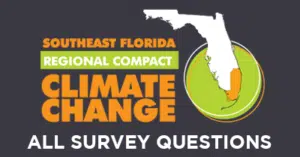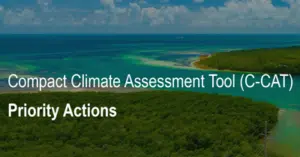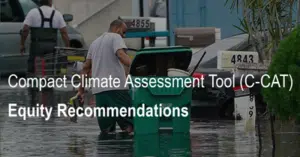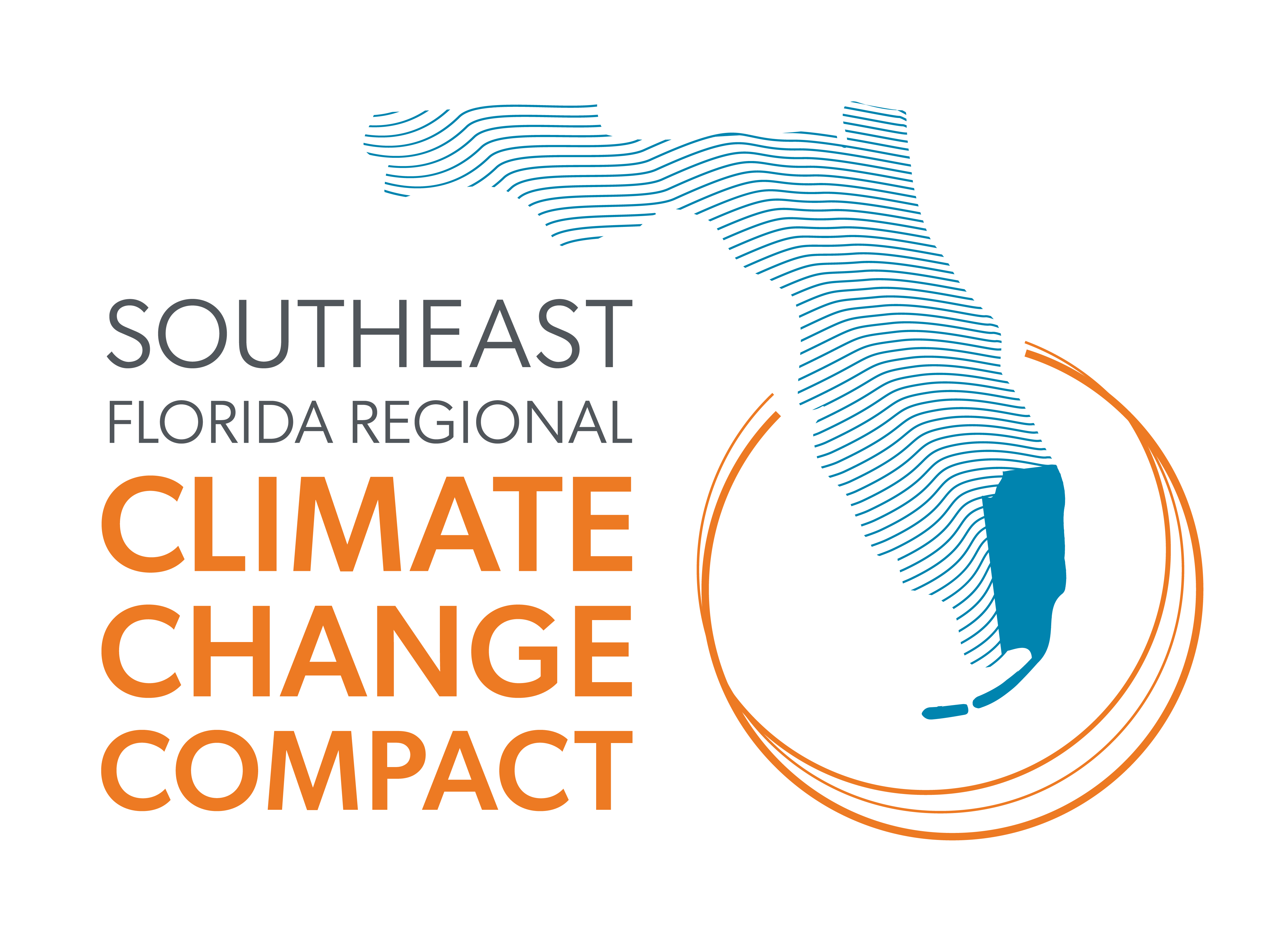
Compact Climate Assessment Tool (C-CAT)
The Compact seeks to align and coordinate climate change initiatives of local and tribal governments across the region, as well as support capacity-building to advance climate action. As such, the Compact developed the Climate Assessment Tool (C-CAT) in response to local government leaders who expressed interest in a shared tool to help identify, track, and report on priority mitigation and adaptation strategies, and provide a means for measuring and communicating resilience progress across the region.
Overview
The C-CAT was developed in partnership with nearly a dozen municipalities and an equity advisory team composed of non-profit and community leaders from across the four-county region. The C-CAT identified 11 priority mitigation and adaptation actions, listed below.
Through an annual self-assessment survey administered by the Compact, local governments can provide their progress toward the prioritized mitigation and adaptation actions. The survey results are used to develop the Regional Climate Action Snapshot of the region’s climate change activities as a way to track progress overtime.
Greenhouse Gas Emission Mitigation Priority Actions
Mitigation Action #1: Establish internal (government operations) and community-wide targets/commitments for greenhouse gas emissions reductions and renewable energy goals, measure, and publicly report progress.
Mitigation Action #2: Improve building energy efficiency and conservation in new and existing buildings, across both residential, commercial, and government buildings.
Mitigation Action #3: Advance the use and adoption of solar energy within government operations and community-wide.
Mitigation Action #4: Expand the use of electric vehicles (EVs) and the installation of EV infrastructure both within government operations and community-wide.
Mitigation Action #5: Reduce vehicle miles traveled. This may include major public transit investments, bike and pedestrian investments, alternative work schedules, and transit oriented development.
Adaptation Priority Actions
Adaptation Action #1: Conduct internal assessment of capacity to advance adaptation and resilience initiatives.
This should include identifying potential staff and financial resources/capacity. In some cases, staff/resources may already support activities and projects that advance adaptation/resilience goals, but are not identified as such. Should sufficient internal capacity not exist, seek support from your county, other municipalities, and other partners to develop a plan for how your local government will prioritize capacity for adaptation/resilience initiatives.
Adaptation Action #2: Conduct vulnerability analysis of hazards related to climate change including, but not limited to, sea level rise, flooding, saltwater intrusion, heat, extreme weather.
The analysis should assess exposure and sensitivity of various assets including, but not limited to critical infrastructure, communities/populations, historic/cultural assets, transportation, natural resources, and economic assets. Assessment should seek to identify what factors contribute to elevated exposure and sensitivity, and what physical, social, institutional, human, and financial capacities exist to adapt, and where there are gaps.
Adaptation Action #3: Develop a community-wide adaptation/resilience plan, inclusive of specific actionable strategies and timeframes.
Adaptation Action #4: Planning: Incorporate risk reduction and equitable community resilience into planning.
This may include comprehensive plans, housing initiatives, post-disaster redevelopment plans, stormwater management plans, transportation plans, and land development regulations, inclusive of low-impact development. Sea level rise projections should be included in all planning activities.
Adaptation Action #5: Policy: Advance policies that reduce risk and build equitable community resilience.
This may include improving stormwater management practices, adopting urban heat policies, updating infrastructure standards, conducting remediation of contaminated sites , and updating building codes.
Adaptation Action #6: Capital Projects: Advance capital projects that reduce risk, adapt to changing climate conditions, and build equitable community resilience.
This may include living shorelines, water infrastructure, resilience hubs, parks & open spaces, urban greening, tidal valves, pump stations, and road/bridge elevation.
Centering Equity in Regional Climate Action
As local and tribal governments across Southeast Florida plan and implement their response to climate change, an opportunity exists to create stronger, more equitable communities shared by all. Given that climate change functions as a threat multiplier, and disproportionately harms those least responsible for its impacts, many local partners have expressed a desire for additional resources to support their efforts to ensure equitable climate action. To this end, local equity leaders developed a guidance document elucidating concrete ways in which to embed equity for each priority action identified.
Recognizing that many are just beginning the journey to place equity at the center of their resilience building efforts, the equity guidance document is an instructive resource for partners regardless of how much progress they have made to date. While this guidance is not meant to be exhaustive of every possible step that can be taken to center equity within climate work, this guidance offers a comprehensive list of activities intended to help advance our shared capacity to address equitable climate action.
How Will the Climate Assessment Tool be Used?
The Compact invites local governments across the four-county region to complete an annual self-assessment on their progress toward the 11 prioritized mitigation and adaptation actions, as well as the ways in which they have embedded equity into these actions via an annual survey administered by the Compact.
It should be noted that as a self-assessment tool, the Compact does not validate any of the activities reported via the survey. By completing the survey, respondents validate responses as accurate to the best of their knowledge. Local and tribal governments are encouraged to include backup documentation to support their self-reporting (i.e. linking to resolutions, budget items, referenced plans, etc.), as well as provide a public comment/resident review period.
The survey will be administered annually by the Compact. Following the close of the survey, the Compact will build upon the annual snapshot of the region’s climate change activities on its website as a way to track progress overtime. Additionally, all survey responses will be made publicly available for download on the Compact’s website.
In 2021, the first year this survey was administered, the Compact established a baseline understanding of what climate actions are being advanced across the Compact region. In subsequent years, we seek to capture annual progress on each of the 11 priority actions.

All Survey Questions PDF
This document contains all survey questions to allow a respondent to review before beginning the response process in SOGOSurvey. A respondent can return to the survey as many times as necessary once they have begun in SOGOSurvey.

11 Priority Actions
This document contains all 11 prioritized mitigation and adaptation actions that local governments are asked to report annual progress toward.

Equity Recommendations
This document contains guidance developed by an equity advisory committee to support local governments in their efforts to embed equity in their climate action. While this document is comprehensive, it is not meant to be exhaustive of every possible step a local government can take to advance equitable climate action.
Benefits of Participating
While partaking in the survey is completely voluntary for local governments, we believe there are numerous benefits:
- Provides guidance on priority actions to take to address climate change
- Provides guidance from local equity experts on ways to embed equity into climate actions
- Creates common priorities to work on together as a region, and identifies others with successful models from whom to learn
- Provides opportunity to share progress and successes
- Aids in improving transparency on climate change activities
- Supports communication with communities and other key stakeholders
- Builds the case for increasingly ambitious climate action in the region and the resources to support this action
- Helps identify and inform potential topics for regional capacity building
Acknowledgements
The Compact wishes to thank staff from the following organizations who have contributed extensive time and expertise to develop the equity guidance for the C-CAT: Zelalem Adefris and Mayra Cruz (Catalyst Miami); Olivia Collins and Caroline Lewis (CLEO Institute); Cornell Crews (Community Reinvestment Alliance of South Florida); Alex Easdale (Southeast Climate & Energy Network); Wendy Jerkins (Community Advocate, Broward County); Scott Strawbridge (Center for Sustainable and Equitable Communities); and Diana Umpierre (Sierra Club). Additionally, the following municipalities and organizations generously provided significant staff time as part of the ad hoc committee to develop this tool in partnership with the Compact: Boca Raton, Boynton Beach, City of Miami Beach, City of Miami, Coconut Creek, Doral, Hallandale Beach, Key West, West Palm Beach, and the Southeast Florida Regional Planning Council.
